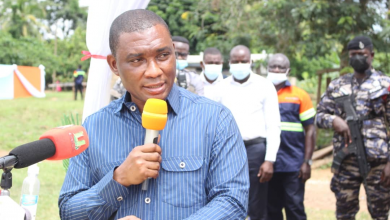Over 8 million SIM cards have been blocked – Ursula reveals

Over 8 million unregistered SIM Cards have been blocked following the rollout of punitive measures by the Ministry of Communication and Digitalization and the National Communications Authority, sector minister Ursula Owusu-Ekulful has revealed.
Speaking to journalists on the sidelines of the 14th ITU Kaleidoscope event, Ursula Owusu-Ekuful said those who are yet to re-register their SIM cards must do so to help in weeding out criminals who take advantage of the internet’s anonymity to defraud others.
“Those who have linked their SIM cards to their Ghana card in the first phase of the registration exercise, but have not gone on to conclude the registration exercise by doing the biometric capture phase, are those whose SIMs have been blocked.
“It is important that we do this because without the security of our devices we are all at risk. There are fraudsters and criminals out there who are using the anonymity of the internet and social media to defraud others, and we need to ensure that no one can hide behind this anonymity.”
Several people on Monday thronged various registration centres of their telecommunication networks to have their SIMs re-registered after they were blocked.
Police officers had to be deployed to some SIM registration centres in the Ashanti Regional capital, Kumasi to avert possible chaos, after hundreds of customers whose SIM cards have been blocked thronged the various centres.
The whole re-registration process began back in October 2021 when the Ghanaian government introduced a new law that required mobile customers to link their SIM cards with their national identity card – known locally as the “Ghana Card” – or risk being disconnected.
The NCA’s deadline said that subscribers who had only completed stage one of the registration process (linkage to Ghana Card) but not stage two (biometric capture) needed to be blocked by November 30, 2022.
At the end of November, MTN Ghana had 22.1 million subscribers that had completed stage one, of which 16.4 million had also completed stage two of the subscriber registration process, leaving 5.7 million that had not completed the process





